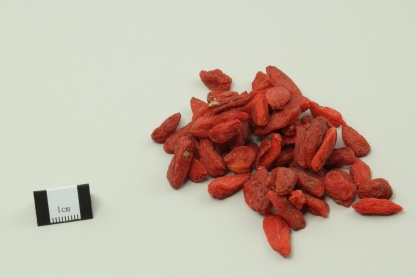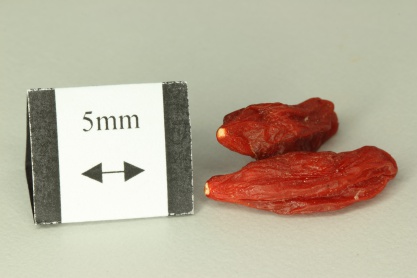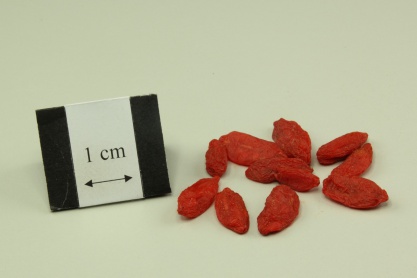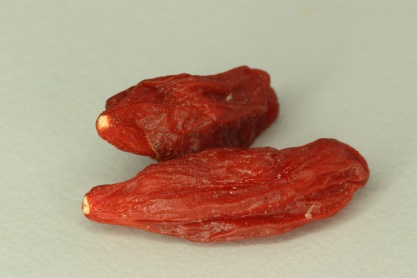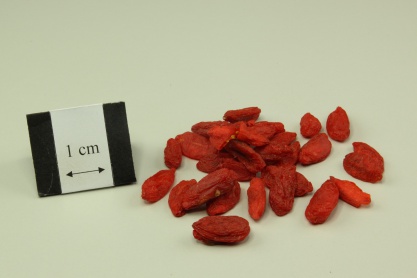枸杞子
- ENG
- Barbary Wolfberry Fruit
- LATIN
- Lycii Fructus
| Medicinal Group | Yin-tonifying medicinal |
|---|---|
| Source | Dried ripe fruit of Lycium barbarum L. (Fam. Solanaceae) |
| Nature and Flavors | sweet; neutral |
| Meridian Affinity | Liver, Kidney |
| Actions | To enrich the liver and the kidney, replenish vital essence and improve vision |
Family
Solanaceae
Part used
Fruit
Indications
Gerenal debility with deficiency of vital essence with manifestations of aching of the loins and knees, dizziness and tinnitus; diabetes caused by internal heat; anemia; impaired vision
Research Findings
- Increase immunological responses (1, 2) However, systematic review suggested further research is required with appropriate primary endpoints (6)
- Exhibit anti-inflammatory effects in mice (3)
- Increase metabolic rate and reduce waist circumference (4) However, systematic review suggested well-designed studies with appropriate randomization are needed to confirm these results (6)
- Increase antioxidant efficacies in humans (5)
- Goji berry has a high concentration of Vitamin A, C, and E, and carotenoids, beta-carotene, lutein, and zeaxanthin. However, human studies are lacking, high-qualty research is needed to confirm the efficacy of goji for vision enhancement or prevention of vision disorders (6)
Cautions
No Data.
Report on adverse effect
Potential risk of drug interaction with warfarin [7]
Reference
Reference
- Amaqase H, Sun B, Nance D. (2009) Immunomodulatory effects of a standardized Lycium barbarum fruit juice in Chinese older healthy human subjects. J Med Food 12(5):1159-65
- Vidal K, Bucheli P, Gao Q, Moulin J, Shen L, Wang J, Blum S, Benyacoub J. (2012) Immunomodulatory effects of dietary supplementation with a milk-based wolfberry formulation in healthy elderly: a randomized, double-blind, placebo-controlled trial. Rejuvenation Res. 15(1):89-97
- Philippe D, Brahmbhatt V, Foata F, Saudan Y, Serrant P, Blum S, Benyacoub J, Vidal K. (2012) Anti-inflammatory effects of Lacto-Wolfberry in a mouse model of experimental colitis. World J Gastroenterol 18(38):5351-9
- Amaqase H, Nance D. (2011) Lycium barbarum increases caloric expenditure and decreases waist circumference in healthy overweight men and women: a pilot study. J Am Coll Nutr 30(5):304-9
- Amaqase H, Sun B, Borek C. (2009) Lycium barbarum (goji) juice improves in vivo antioxidant biomarkers in serum of healthy adults. Nutr Res. 29(1):19-25
- Ulbricht C, Bryan J, Costa D, Culwell S, Gises N, Isaac R, Nummy K, Pham T, Rapp C, Ruise E, Weissner W, Windsor R, Woods J, Zhou S. (2015) An Research Findings-based systematic review of goji (Lycium spp.) by the Natural Standard Research Collaboration. J Diet Suppl. 12(2):184-240
- Goji (Lycium barbarum and L. chinense): Phytochemistry, pharmacology and safety in the perspective of traditional uses and recent popularity.


